Select Publications
(for full list see CV: link to CV)
Rumination/Perseverative Cognitions and Health
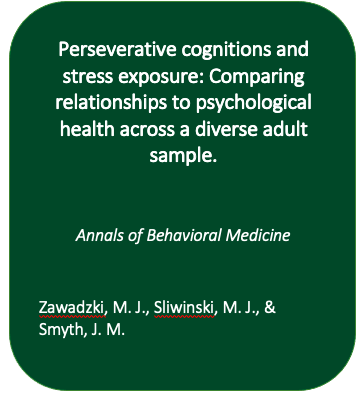
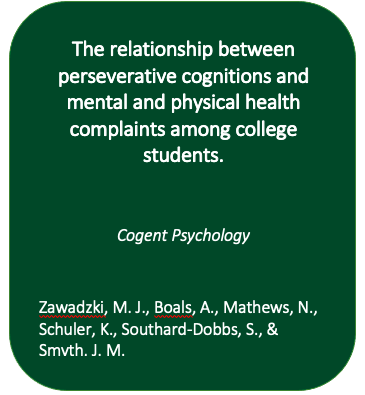
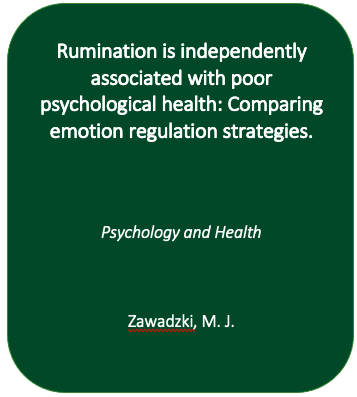
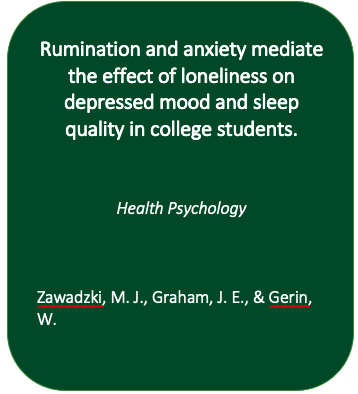
Stress and Health

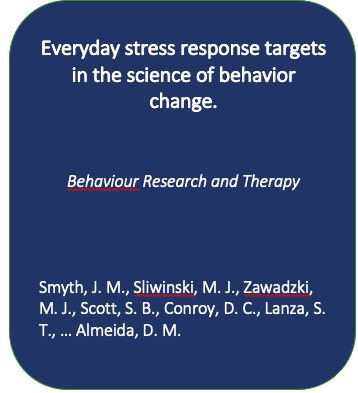
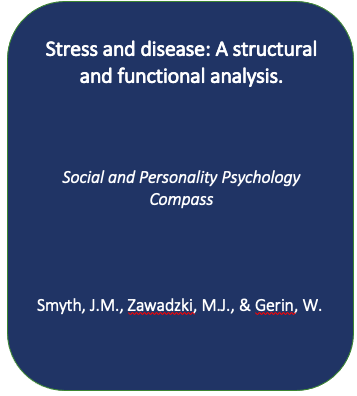
Emotional Well-Being
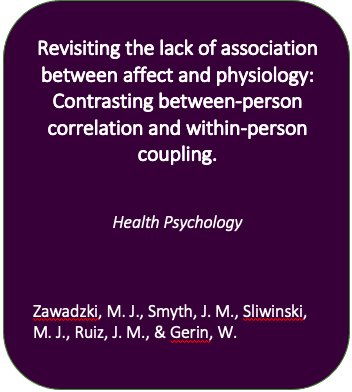
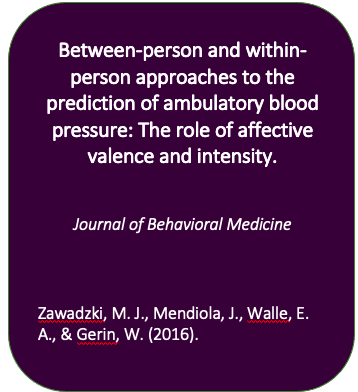
Leisure
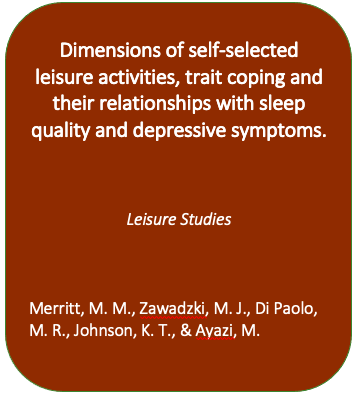
Rumination/Perseverative Cognitions and Health
Zawadzki, M. J., Sliwinski, M. J., & Smyth, J. M. (2018). Perseverative cognitions and stress exposure: Comparing relationships to psychological health across a diverse adult sample. Annals of Behavioral Medicine, 52, 1060-1072. https://doi.org/10.1093/abm/kay009
Zawadzki, M. J., Boals, A., Mathews, N., Schuler, K., Southard-Dobbs, S., & Smyth, J. M. (2018). The relationship between perseverative cognitions and mental and physical health complaints among college students. Cogent Psychology, 5:1, 1-11. https://doi.org/10.1080/23311908.2018.1475878
Zawadzki, M. J. (2015). Rumination is independently associated with poor psychological health: Comparing emotion regulation strategies. Psychology & Health, 30, 1146-1163. https://doi.org/10.1080/08870446.2015.1026904
Zawadzki, M. J., Graham, J. E., & Gerin, W. (2013). Rumination and anxiety mediate the effect of loneliness on depressed mood and sleep quality in college students. Health Psychology, 32, 212-222. https://doi.org/10.1037/a0029007
Stress and Health
Zawadzki, M. J., Scott, S. B., Almeida, D. M., Lanza, S. T., Conroy, D. E., Sliwinski, M. J., Kim, J., Marcusson-Clavertz, D., Stawski, R., Green, P. M., Sciamanna, C. N., & Smyth, J. M. (2019). Understanding stress reports in daily life: A coordinated analysis of factors associated with the frequency of reporting stress. Journal of Behavioral Medicine, 42, 545-560. https://doi.org/10.1007/s10865-018-00008-x
Smyth, J. M., Sliwinski, M. J., Zawadzki, M. J., Scott, S. B., Conroy, D. C., Lanza, S. T., … Almeida, D. M. (2018). Everyday stress response targets in the science of behavior change. Behaviour Research and Therapy, 101, 20-29. https://doi.org/10.1016/j.brat.2017.09.009
Smyth, J.M., Zawadzki, M.J., & Gerin, W. (2013). Stress and disease: A structural and functional analysis. Social and Personality Psychology Compass, 7, 217-227. https://doi.org/10.1111/spc3.12020
Zawadzki, M. J., Smyth, J. M., Sliwinski, M. J., Ruiz, J. M., & Gerin, W. (2017). Revisiting the lack of association between affect and physiology: Contrasting between-person correlation and within-person coupling. Health Psychology, 36, 811-818. https://doi.org/10.1037/hea0000466
Zawadzki, M. J., Mendiola, J., Walle, E. A., & Gerin, W. (2016). Between-person and within-person approaches to the prediction of ambulatory blood pressure: The role of affective valence and intensity. Journal of Behavioral Medicine, 39, 757-766. https://doi.org/10.1007/s10865-016-9746-6
Merritt, M. M., Zawadzki, M. J., Di Paolo, M. R., Johnson, K. T., & Ayazi, M. (2017). Dimensions of self-selected leisure activities, trait coping and their relationships with sleep quality and depressive symptoms. Leisure Studies, 36, 838-851. https://doi.org/10.1080/02614367.2017.1310283
Zawadzki, M. J., Smyth, J. M., & Costigan, H. J. (2015). Real-time association between engaging in leisure and daily health and well-being. Annals of Behavioral Medicine, 49, 605-619. https://doi.org/10.1007/s12160-015-9694-3
Zawadzki, M. J., Smyth, J. M., Merritt, M. M., & Gerin, W. (2013). Absorption in self-selected activities is associated with lower ambulatory blood pressure but not for high trait ruminators. American Journal of Hypertension, 26, 1273-1279. https://doi.org/10.1093/ajh/hpt118

